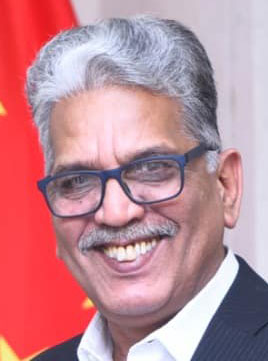The government has been relatively quiet on the details of its proposed ‘constitutional package,’ leaving much room for speculation and concern. Based on the limited information available, the proposed amendments seem to center on reshaping Pakistan’s judicial structure, with several potential changes that raise more questions than answers.
Creation of a Constitutional Court
One of the most notable features of the package appears to be the creation of a Constitutional Court, which would handle cases related specifically to constitutional matters, including those that fall under Articles 184, 185, and 186 of the Constitution. However, key questions emerge regarding the relationship between this new court and the Supreme Court:
- Status and Structure: Will this court operate as an independent and equal body alongside the Supreme Court, or will it function as a specialized, subordinate court? Who will staff this court — sitting or retired judges, or entirely new appointments?
- Appointments: Another critical question is about the process for appointing judges to this new court. Will they be appointed by the government, or will the existing judicial commission be involved? Some even wonder if the current Chief Justice, Justice Qazi Faez Isa, could potentially head the new court.
While the government argues that the creation of a Constitutional Court is necessary to relieve the Supreme Court’s backlog of over 60,000 pending cases, many are skeptical. Critics argue that the Supreme Court’s backlog is largely due to its focus on high-profile political cases, which a separate Constitutional Court might not solve unless judicial inefficiency is addressed across the board.
Judicial Tenure Extension
Another potentially contentious element of the package is the proposed extension of tenure for judges, specifically an increase in the retirement age. While some proponents argue this could reduce the financial burden of pensions, it appears that the extension applies only to judges and not to other sectors of the bureaucracy. This raises concerns that the change may be politically motivated rather than a part of comprehensive fiscal reform.
Changes to Chief Justice Appointment Process
Another significant change within the package involves the process for appointing the Chief Justice of Pakistan (CJP). Reportedly, the new system would see a five-member panel of Supreme Court judges involved in the selection, but the final decision would rest with the government. This would be a sharp departure from the current system, where the Judicial Commission of Pakistan plays the leading role in appointing judges.
Critics are concerned that this new process might compromise the judiciary’s independence by exposing it to political influence. If the proposed panel includes members of the government and opposition, as rumored, the appointment process for the CJP could become subject to the same political bargaining that has often plagued other key appointments in Pakistan.
Merging of Judicial Commission and Parliamentary Committee
Another aspect of the constitutional package reportedly includes the merging of the Judicial Commission with the Parliamentary Committee for appointing judges. Such a move could potentially increase political influence over judicial appointments, undermining the existing system of checks and balances.
Inter-Provincial Transfer of Judges
The proposed inter-provincial transfer of high court judges is another reform that is likely to stir debate. This change could raise concerns about the autonomy and independence of provincial high courts, as it would give the central government more control over the judiciary’s structure.
Key Concerns and Potential Impact
While the government emphasizes the reforms’ potential to address judicial inefficiency and streamline the court system, legal experts and opposition voices remain unconvinced. They see the constitutional package as a potential threat to the judiciary’s independence and a move that could centralize political power.
- Judicial Independence: Many fear that reforms related to the appointment process, tenure, and court structure could erode the judiciary’s autonomy, making it vulnerable to political manipulation.
- Efficiency vs. Independence: While judicial inefficiency is a legitimate issue, some argue that the government is using it as a smokescreen for deeper political objectives, particularly given the focus on cases involving constitutional and political matters.
As more details of the constitutional package emerge, the larger debate will revolve around whether these reforms will lead to a more efficient judicial system or if they risk undermining the independence and integrity of Pakistan’s judiciary. The public and legal community will be closely watching how these proposals evolve and whether they serve the interests of justice or political expediency.


